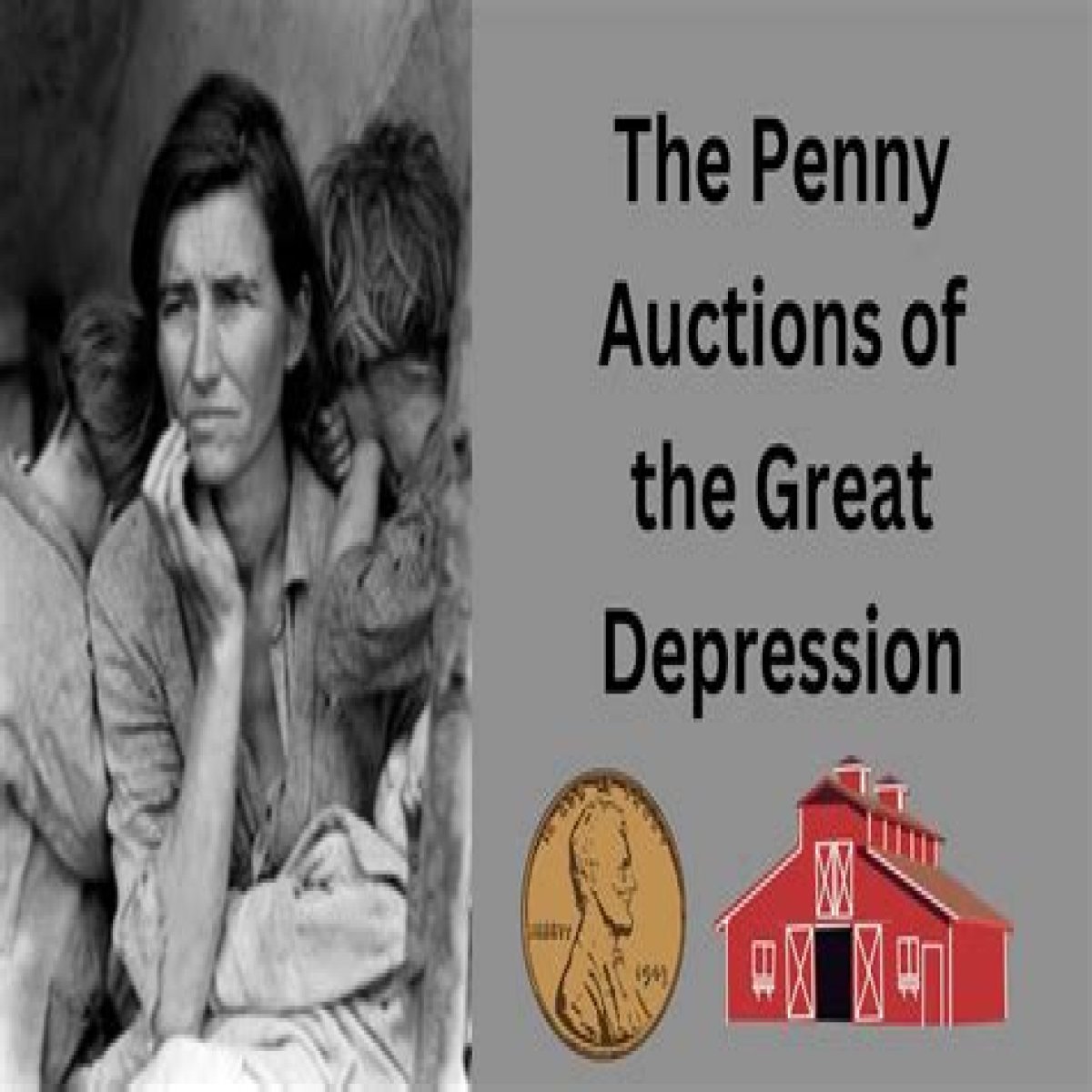What were penny auctions in the Great Depression?
The term arose during the foreclosure of farms during the Great Depression in the United States: neighbors would gather in large numbers at the auction and place bids of only a few pennies, while intimidating anyone who attempted to bid competitively.
What was a penny auction quizlet?
In what were known as penny auctions, farmers would bid mere pennies on land and machines auctioned by the banks in order to help their struggling neighbors. Buyers then returned the farms and machinery to help their original owners.
Why would farmers hold penny auctions?
Fending off Foreclosures with Penny Auctions During the Great Depression, farmers in the Midwest held vigilante “penny auctions” to stave off foreclosures.
Why were penny auctions made illegal during the Great Depression?
Penny Auctions Fight Foreclosures during the Depression. As the pace of foreclosure auctions increased between 1930 and 1932, more and more farmers became desperate. Activists demanded that state legislators halt foreclosure sales. The bank was selling the land and equipment because the family coundn’t repay a loan.
Are Penny Auctions legal?
Frequently, however, a bidder expends all his or her bids without winning the item. Although some penny auction sites charge subscription fees, the main source of revenue for penny auction site owners is the sale of bids. At present the operation of a penny auction website in the United States is legal.
How did farmers survive the GD?
Although it wasn’t easy, many farmers were able to survive during the Great Depression. They managed to grow and sell enough crops to pay their mortgages and keep their farms. These farmers were usually located in areas of the country that weren’t hit by drought and dust storms.
What did farmers do during the Depression?
In some ways farmers were better off than city and town dwellers. Farmers could produce much of their own food while city residents could not. Almost all farm families raised large gardens with vegetables and canned fruit from their orchards. They had milk and cream from their dairy cattle.
